
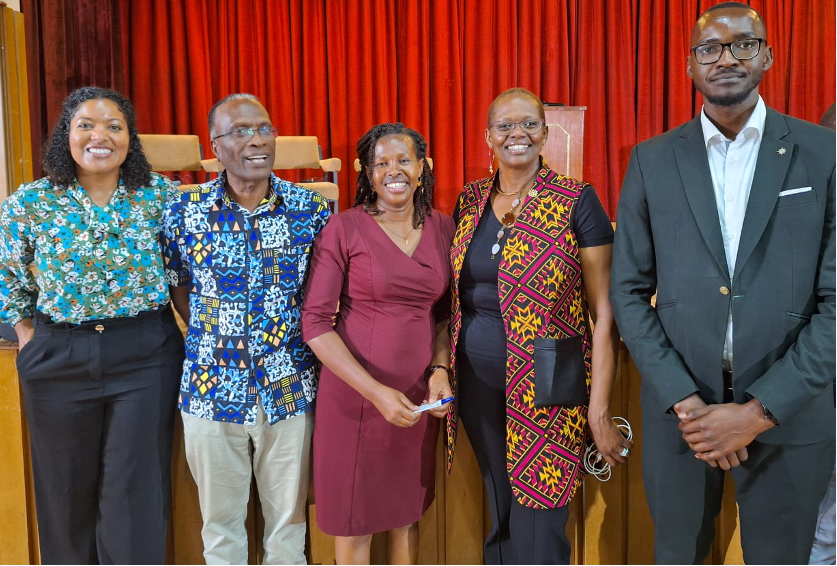
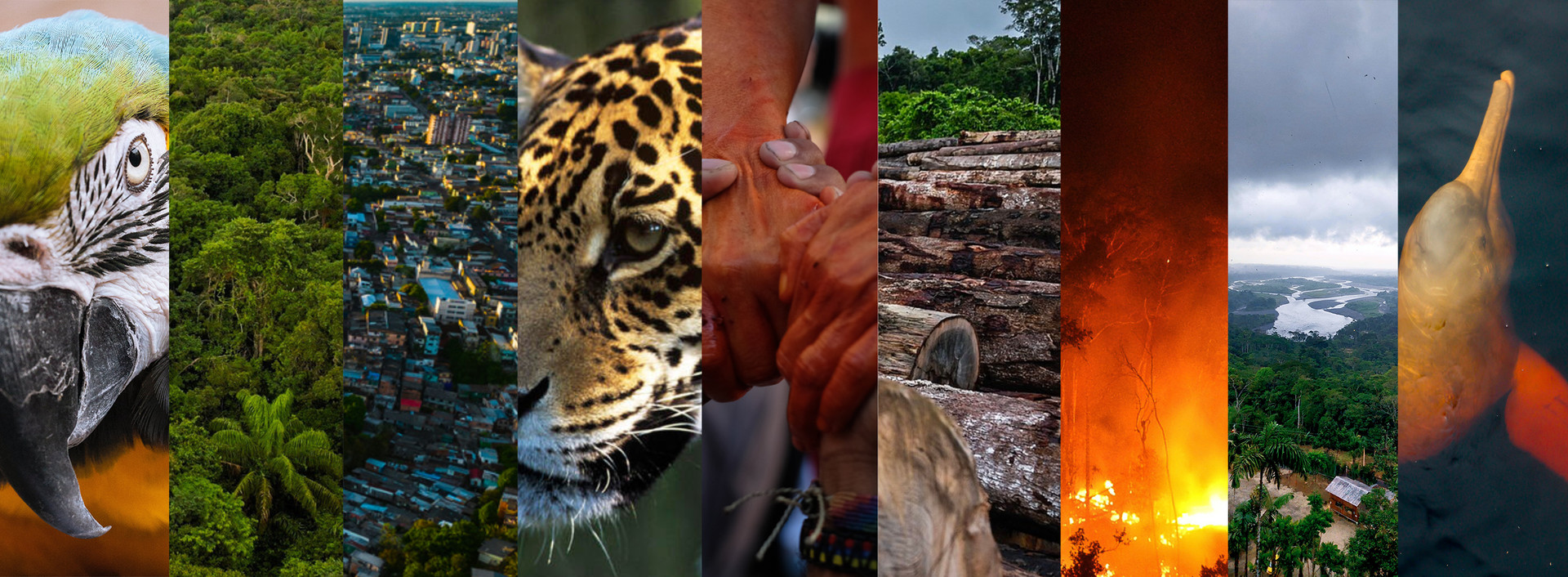
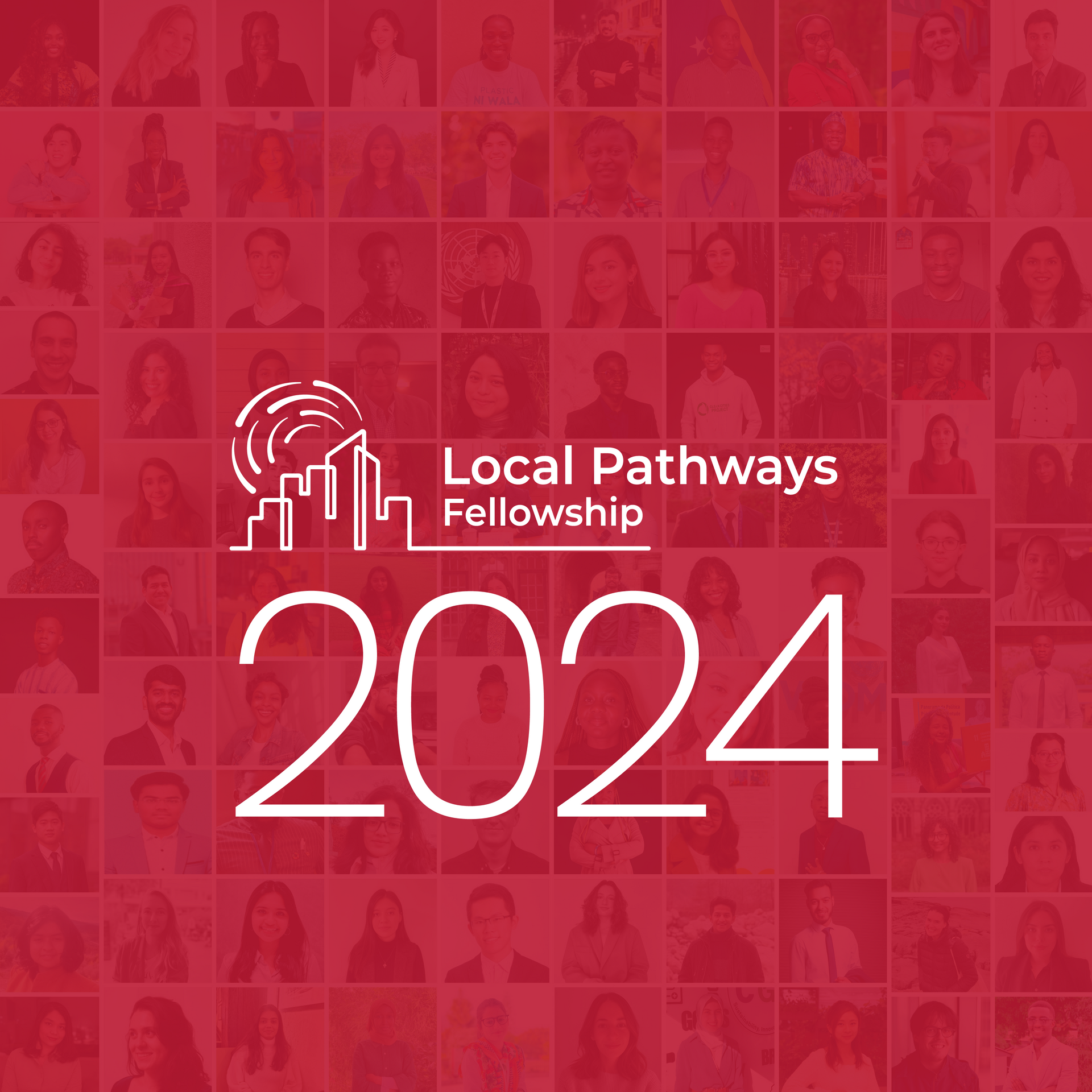
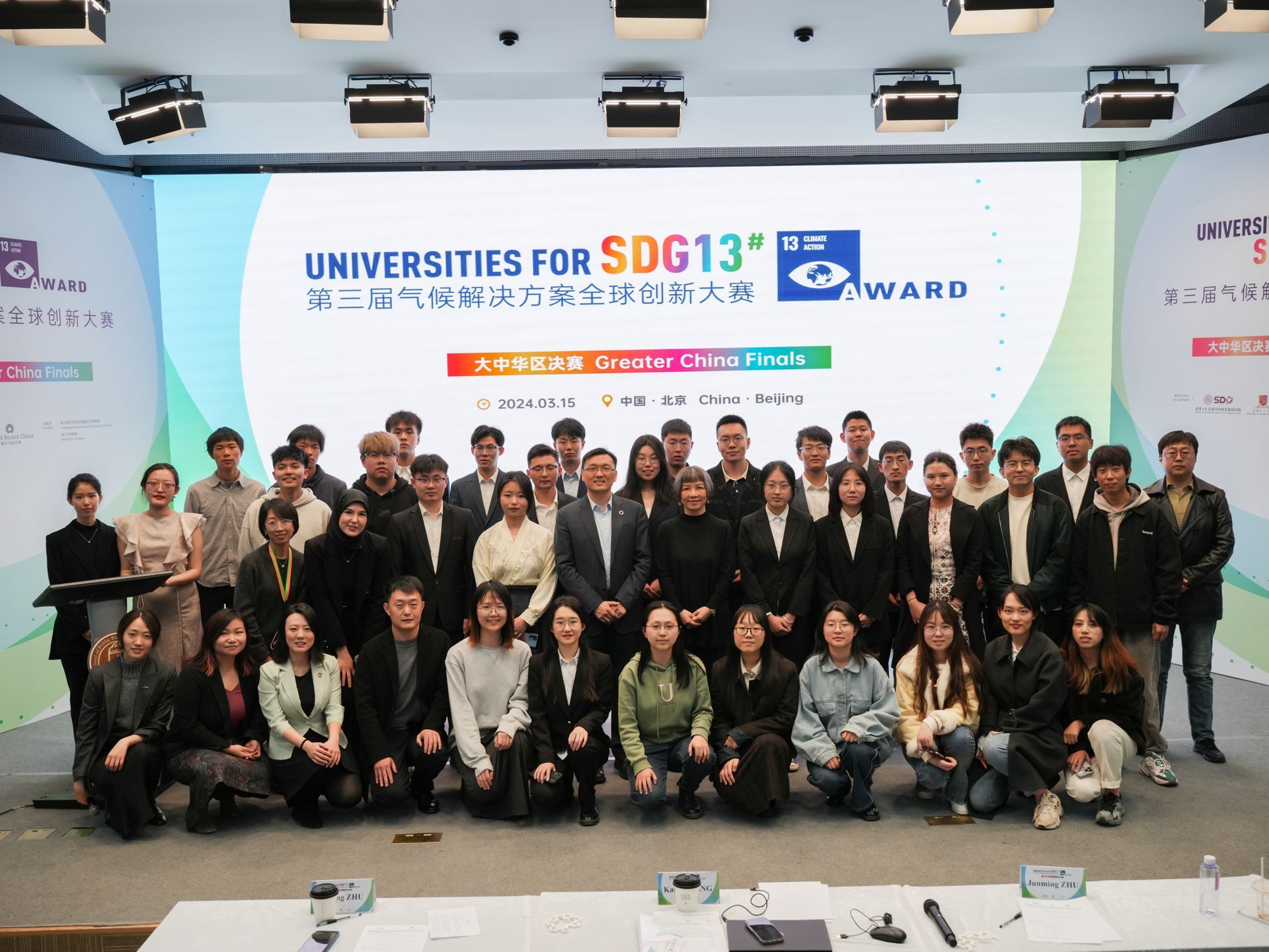

New York | November 2021
The Government of Paraguay is currently preparing for the upcoming revision of Annex C of the Treaty of Itaipú
, the legally binding agreement between Paraguay and Brazil for the exploitation of the hydroelectric potential of the Paraná River, which is due for review in 2023.
As such, on behalf of the Government of Paraguay, the Ministry of Finance of Paraguay asked Professor Jeffrey Sachs and his team to revisit the 2013 “ Leveraging Paraguay’s Hydropower for Sustainable Economic Development
'' report, with support from the Development Bank of Latin America (CAF) and in partnership with the Sustainable Development Solutions Network (SDSN). This work culminated in a new report, “ Decarbonization Pathways for Paraguay’s Energy Sector
,” published in November of 2021 by the Columbia Center on Sustainable Investment (CCSI), and co-authored by the Quadracci Sustainable Engineering Lab at Columbia University, and Paraguay-based Centro de Recursos Naturales, Energía y Desarrollo (CRECE).
This project, for which SDSN was a partner under the leadership of Professor Sachs, will make technical contributions to the policymakers and negotiators of the revision of Annex C. The resulting report—available in both English and Spanish—provides a set of recommendations for Paraguay to reduce its greenhouse gas emissions and meet its commitments made under the Paris Agreement. The recommendations are based on the results of three energy models, findings from literature reviews, and expert interviews to examine how Paraguay can decarbonize its energy use sectors by 2050 through economy-wide zero-carbon electrification, massive energy efficiency gains, behavioral changes, and institutional reforms.
The report presents six overarching ideas for its vision of the decarbonization pathway of Paraguay’s energy sector:
The 2050 zero-emissions scenario is feasible and desirable. A robust and capacitated Ministry of Energy should be created to oversee decarbonization of the energy sector. Decarbonization should be implemented by a reformed national electric utility (ANDE) that is financially healthy and operationally modern, digitized in the services it provides, and open to private sector participation in electricity generation and distribution.
The electricity master plan should anticipate a massive need for electrification of end-uses (both private and public transportation, shipping, appliances, homes, and industry), aligned with the 2050 zero-emissions scenario. This will require new substantial investments in modern and clean generation (mainly hydropower and solar generation combined with storage), given that the model predicts that Paraguay will utilize its current hydropower surplus capacity by the mid-2030s.
To optimize investment in generation and ensure a balanced load growth as demand increases, efforts should be conducted on eight fronts:
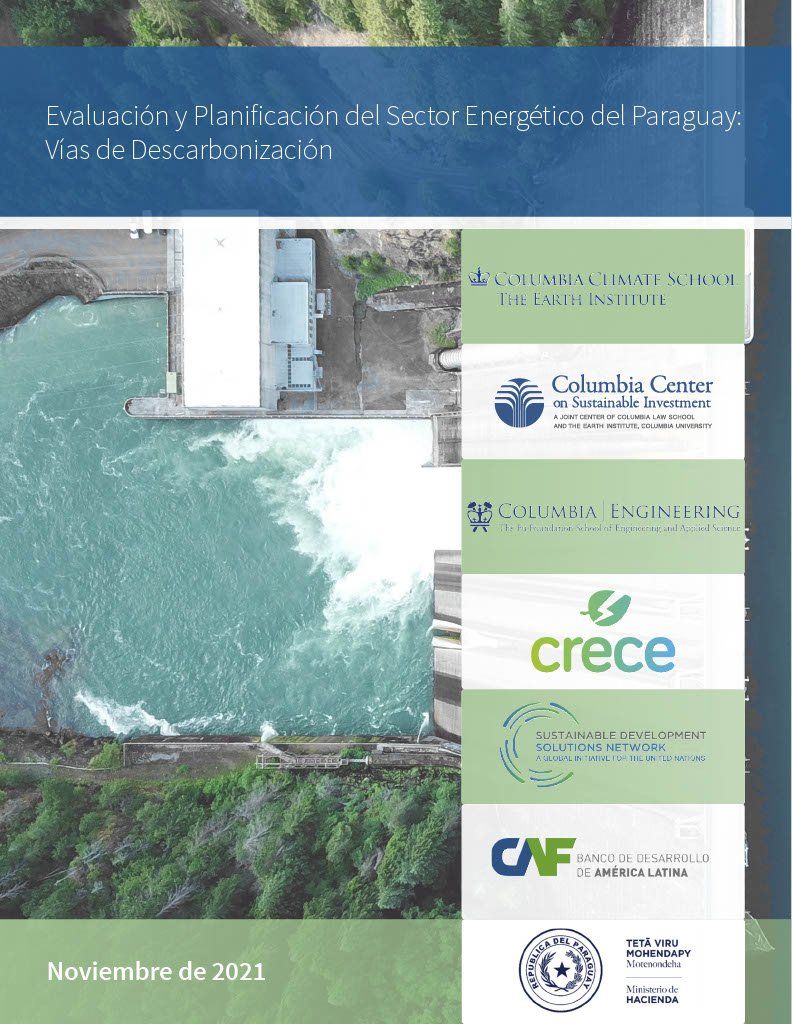
Nueva York | Noviembre del 2021
El Gobierno de Paraguay se está preparando para la próxima revisión del Anexo C del Tratado de Itaipú
, el acuerdo entre Paraguay y Brasil para la explotación del potencial hidroeléctrico del río Paraná, que se reevaluará en el 2023.
Por lo tanto, en nombre del Gobierno de Paraguay, el Ministerio de Finanzas de Paraguay les pidió al profesor Jeffrey Sachs y su equipo que revisaran el informe, " Aprovechando de la energía hidroeléctrica del Paraguay para el desarrollo económico sustentable
" del 2013, con el apoyo del Banco de Desarrollo de América Latina (CAF) y en asociación con la Red de Soluciones de Desarrollo Sostenible (SDSN). Este trabajo culminó con un nuevo informe, “ Evaluación y planificación del sector energético del Paraguay: vías de descarbonización
”, publicado en noviembre del 2021 por el Centro de Inversión Sostenible de Columbia (CCSI) y preparado conjuntamente por el Laboratorio de Ingeniería Sostenible Quadracci de la Universidad de Columbia y el Centro de Recursos Naturales, Energía y Desarrollo (CRECE).
Este proyecto, para el cual SDSN fue socio bajo el liderazgo del profesor Sachs, proporcionará contribuciones técnicas a los encargados de formular políticas y negociadores de la revisión del Anexo C. El informe resultante, disponible en inglés y español, presenta un conjunto de recomendaciones para que Paraguay reduzca sus emisiones de gases de efecto invernadero y cumpla con los compromisos asumidos bajo el Acuerdo de París. Las recomendaciones se basan en los resultados de tres modelos energéticos, hallazgos de revisiones de la literatura y entrevistas a expertos para examinar cómo Paraguay puede descarbonizar sus sectores de uso de energía para el año 2050, a través de la electrificación sin carbono de la economía, ganancias masivas de eficiencia energética, cambios de comportamiento y reformas institucionales.
Este informe presenta seis ideas generales para una visión de la vía de descarbonización del sector energético de Paraguay:
El escenario de cero emisiones de 2050 es factible y deseable. Debe crearse un Ministerio de Energía sólido y capacitado para supervisar la descarbonización del sector energético. La descarbonización debe ser implementada por una Administración Nacional de Electricidad (ANDE) reformada que sea financieramente saludable y operativamente moderna, digitalizada en los servicios que proporciona, y abierta a la participación del sector privado en la generación y distribución de electricidad.
El plan maestro de electricidad debe anticipar una necesidad masiva de electrificación de los usos finales (transporte público y privado, envío, electrodomésticos, hogares e industria), alineado con el escenario de cero emisiones de 2050. Esto requerirá nuevas inversiones sustanciales en generación moderna y limpia (principalmente generación hidroeléctrica y solar combinada con almacenamiento), dado que el modelo predice que Paraguay utilizará su capacidad excedente de energía hidroeléctrica actual a mediados de la década del 2030-2040.
Para optimizar la inversión en generación y garantizar un crecimiento equilibrado de la carga a medida que aumenta la demanda, se deben realizar esfuerzos en ocho frentes:
Las fuentes de financiación para la descarbonización deberían provenir de ahorros relacionados con la eficiencia energética, reformas fiscales, sistemas adecuados de gestión de ingresos que eviten el desperdicio de gastos recurrentes, la emisión de bonos en condiciones favorables por parte de los socios de los bancos multilaterales de desarrollo (BMD) y el uso total o parcial de la disponibilidad eventual de recursos financieros una vez que la deuda de construcción de Itaipú ha sido amortizada.
Para obtener más información, por favor vea las versiones en inglés y español del informe completo, el resumen ejecutivo, los apéndices y los informes técnicos aquí.
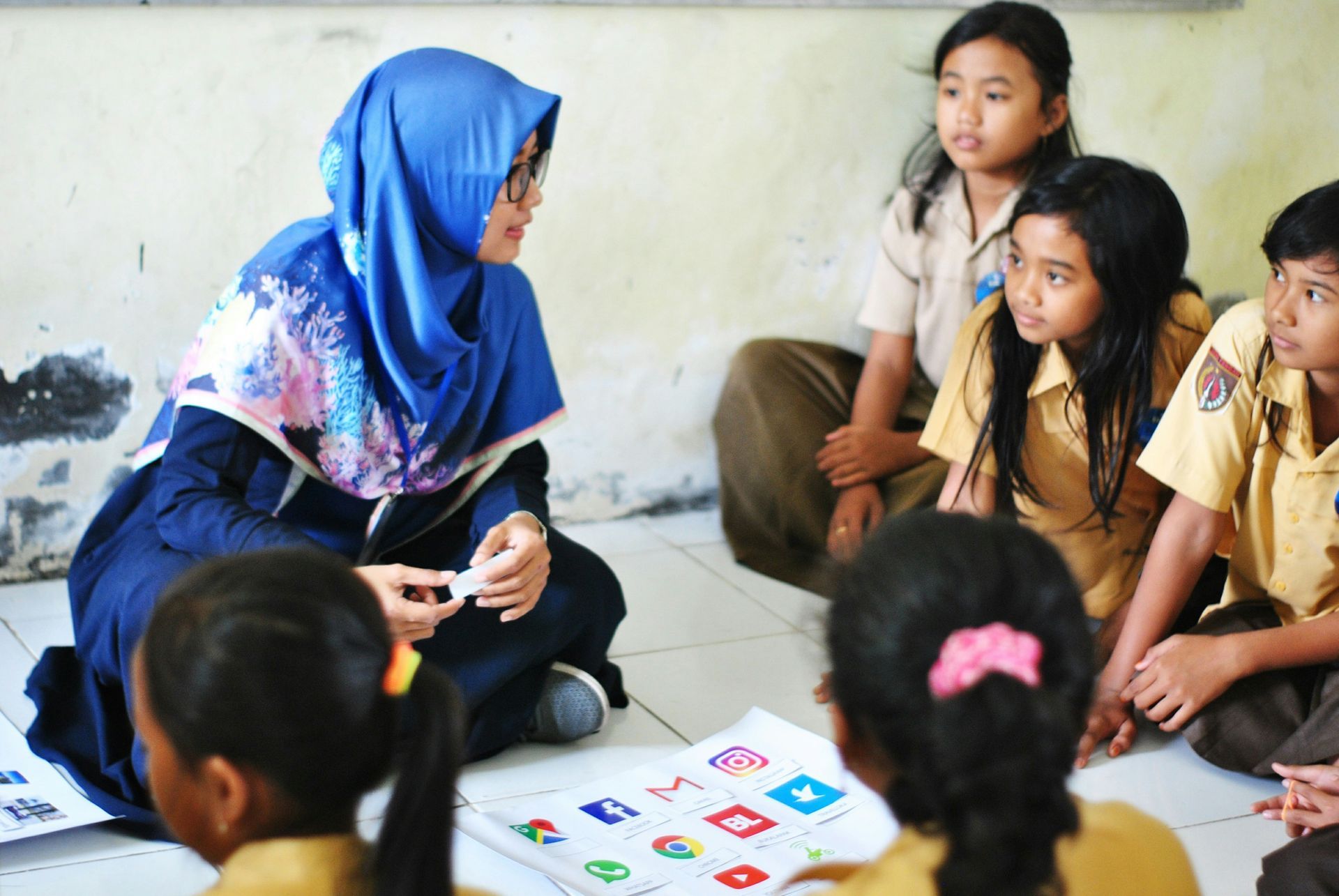





Get our latest insights, opportunities to engage with our networks, and more.
SDSN mobilizes global scientific and technological expertise to promote practical solutions for sustainable development, including the implementation of the Sustainable Development Goals (SDGs) and the Paris Climate Agreement.
Paris
19 rue Bergère
75009 Paris
France
+33 (0) 1 84 86 06 60
New York
475 Riverside Drive
Suite 530
New York NY 10115 USA
+1 (212) 870-3920
Kuala Lumpur
Sunway University
Sunway City Kuala Lumpur
5 Jalan Universiti
Selangor 47500
Malaysia
+60 (3) 7491-8622